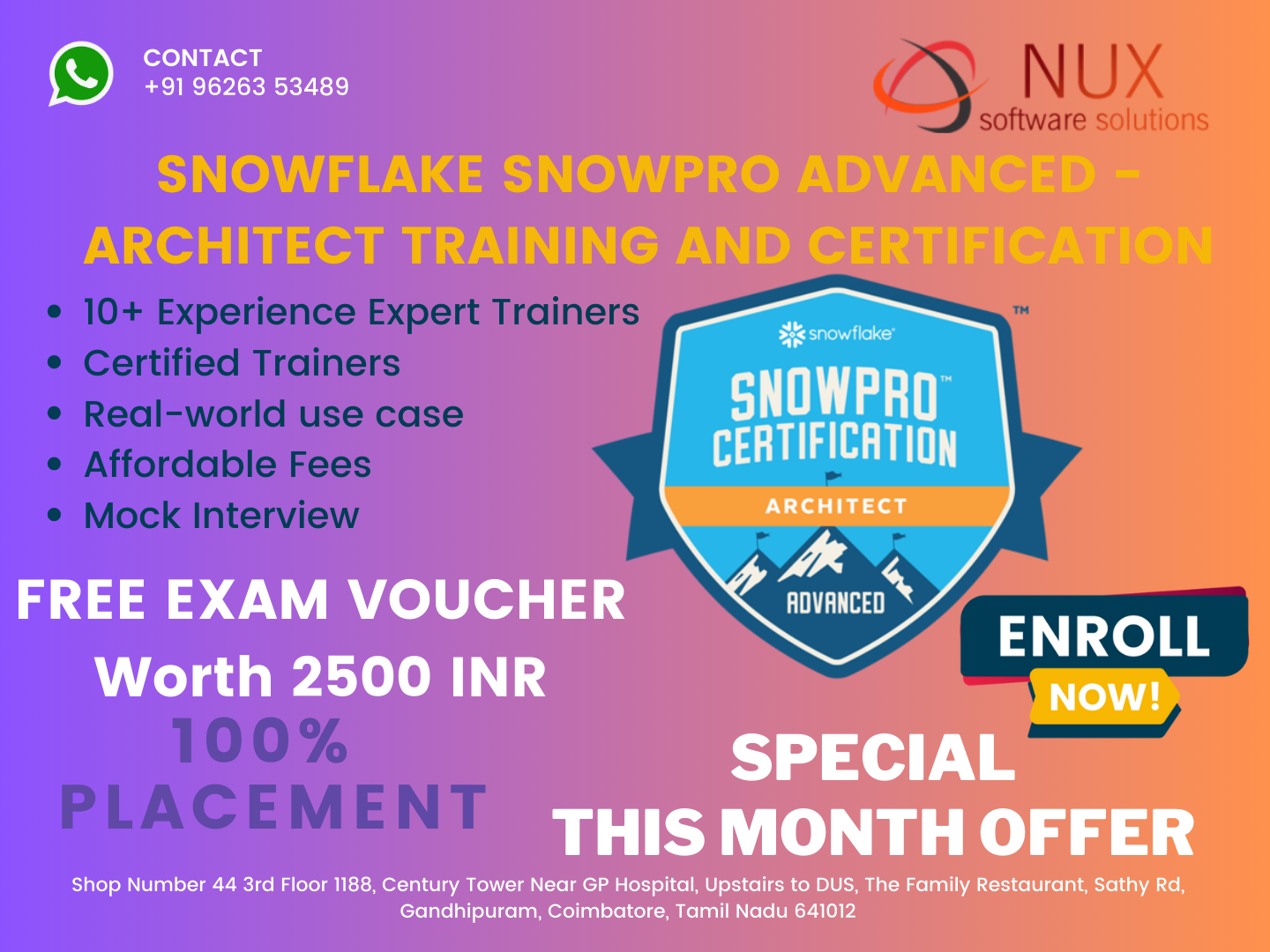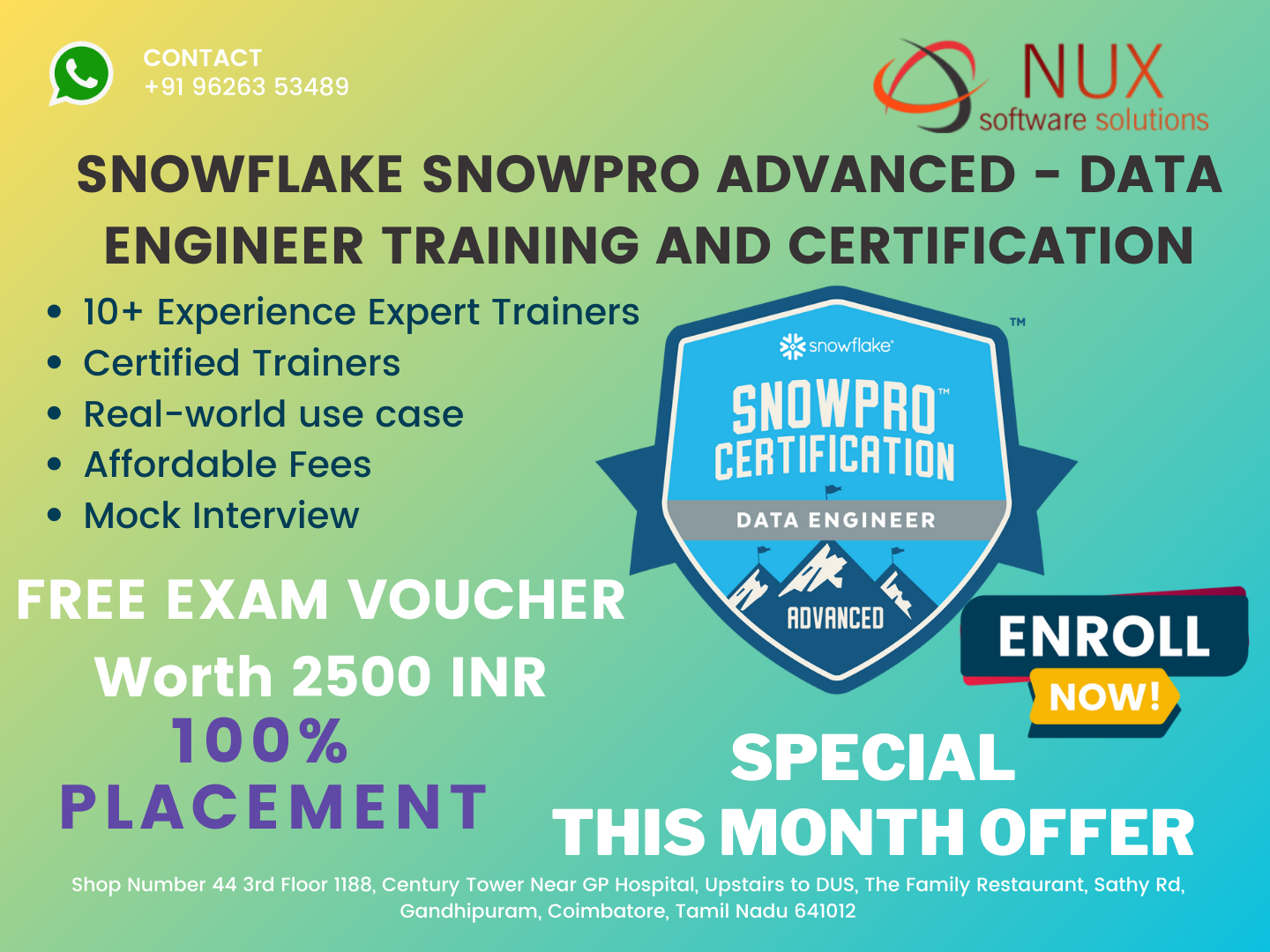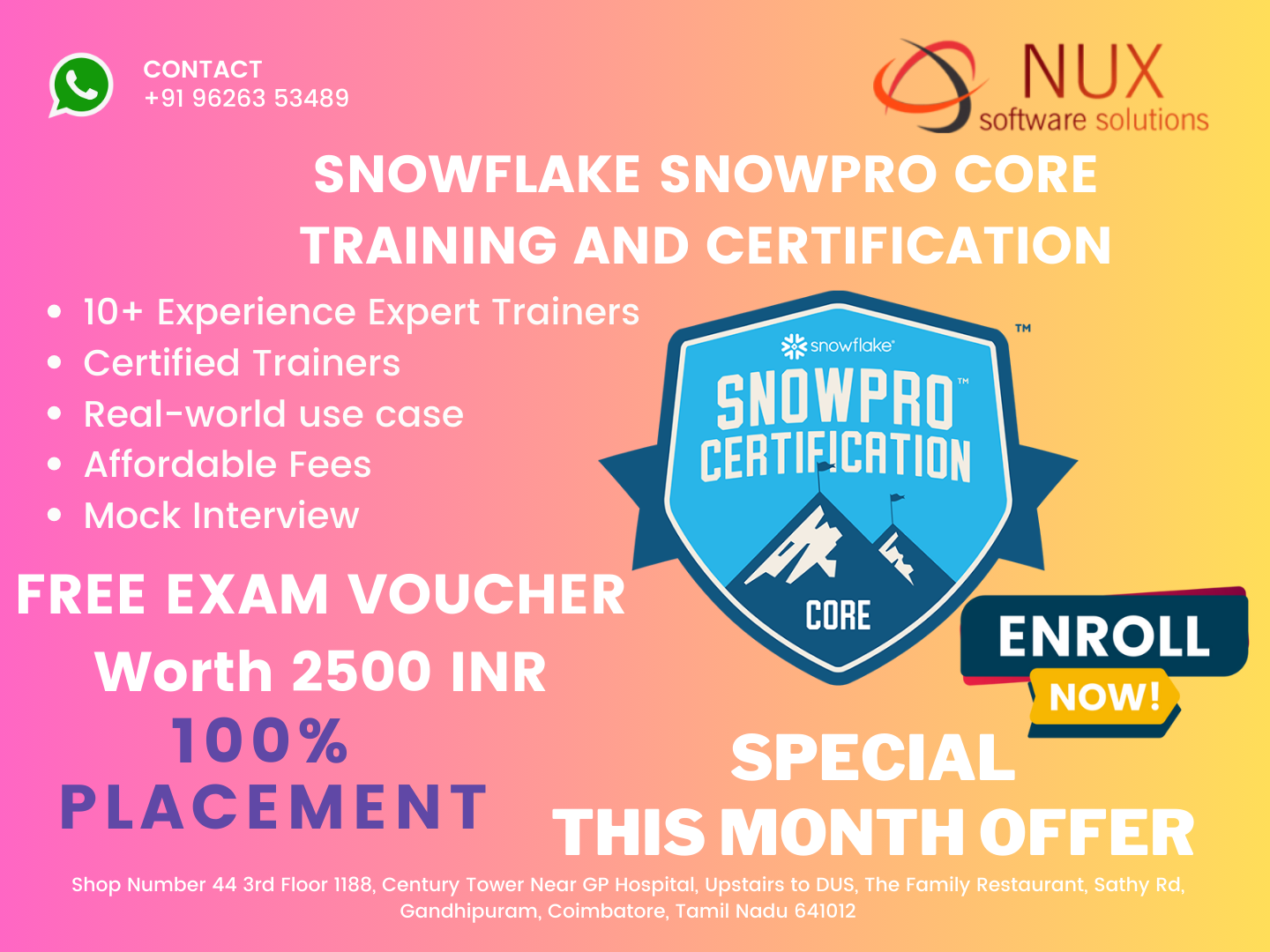Snowflake SnowPro Advanced – Architect


Best Training Institute in coimbatore for Snowflake SnowPro Core Training and Certification.
Nux software Training & Certification Solutions in Coimbatore is the go-to place for comprehensive cloud computing training, particularly in AWS (Amazon Web Services). AWS is a prominent player in the cloud services domain, and gaining expertise in it can indeed open up a plethora of opportunities for businesses and professionals.
Having experienced and knowledgeable instructors is key to mastering AWS, considering its ever-evolving landscape. It’s not just about learning the basics but also understanding how to design applications and systems on AWS, which is crucial in the real-world application of cloud services.
Moreover, the focus on guiding aspirants through the recommended courses, labs, and exams is a structured approach that ensures individuals are well-prepared for AWS certifications. As AWS continues to be a dominant force in the cloud computing industry, having a reliable training institute like Nux software is undoubtedly beneficial for those looking to excel in this field.
Furthermore, we have created a lab with a well-equipped infrastructure and a 24/7 accessible facility that is excellent for experts, corporations, individuals, real project training, and industrial training.
We have placed over 500 registered organizations and 10000+ students and professionals in prestigious roles.
Course Syllabus
Snowflake SnowPro Advanced - Architect
Accounts and Security - 25%
- Design a Snowflake account and database strategy, based on business requirements.
Create and configure Snowflake parameters based on a central account and any additional accounts.
List the benefits and limitations of one Snowflake account as compared to multiple Snowflake accounts.
- Design an architecture that meets data security, privacy, compliance, and governance requirements.
Configure Role Based Access Control (RBAC) hierarchy
System roles and associated best practices
Data Access
Data Security
Compliance
- Outline Snowflake security principles and identify use cases where they should be applied.
Encryption
Network security
User, Role, Grants provisioning
Authentication
Snowflake Architecture - 30%
- Outline the benefits and limitations of various data models in a Snowflake environment.
Data models
- Design data sharing solutions, based on different use cases.
Use Cases
- Sharing within the same organization/same Snowflake account
- Sharing within a cloud region
- Sharing across cloud regions
- Sharing between different Snowflake accounts
- Sharing to a non-Snowflake customer
- Sharing Across platforms
Snowflake Marketplace
Data Exchange
Data Sharing Methods
- Create architecture solutions that support Development Lifecycles as well as workload requirements.
Data Lakes and Environments
Workloads
Development lifecycle support
- Given a scenario, outline how objects exist within the Snowflake Object hierarchy and how the hierarchy impacts an architecture.
Roles
Virtual warehouses
Object hierarchy
Database
- Determine the appropriate data recovery solution in Snowflake and how data can be restored.
Backup/Recovery
Disaster Recovery
Data Engineering - 25%
- Determine the appropriate data loading or data unloading solution to meet business needs.
Data sources
Ingestion of the data
Architecture Changes
Data unloading
- Outline key tools in Snowflake’s ecosystem and how they interact with Snowflake.
Connectors
- Kafka
- Spark
- Python
Drivers
- JDBC
- OBDC
API endpoints
SnowSQL
- Determine the appropriate data transformation solution to meet business needs.
Materialized views, views, and secure views
Staging layers and tables
Querying semi-structured data
Data processing
Stored Procedures
Streams and Tasks
Functions
- External functions
- User-Defined Functions (UDFs)
Performance Optimization - 20%
- Outline performance tools, best practices, and appropriate scenarios where they should be applied.
Query profiling
Virtual Warehouse configuration
Clustering
Search Optimization Service
Caching
Query rewrite
- Troubleshoot performance issues with existing architectures.
JOIN explosions
Virtual warehouse selection (scaling up as compared to scaling out)
Best practices and optimization techniques
Duplication of data
Monitoring and alerting
- Statistics
- Resource monitoring
- Account usage and information schema


